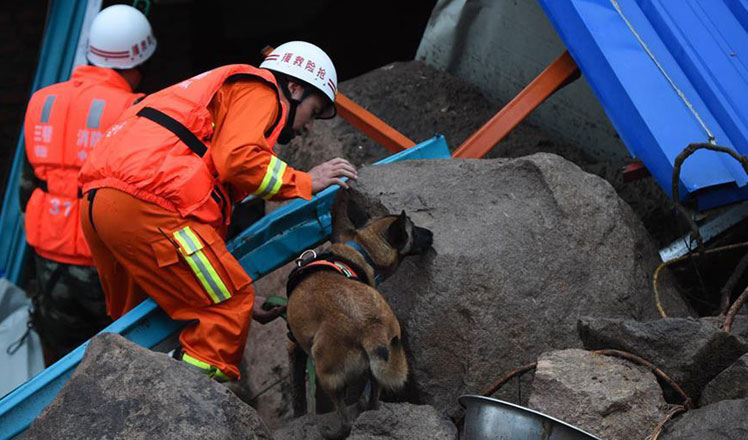Poor infrastructure, strict regulation prove a drag on corporate aviation
Updated: 2016-05-10 09:45
By Shi Jing in Shanghai(China Daily)
|
||||||||
While economic slowdown and tightening government controls are considered major reasons for the recent slide in the Chinese business aviation industry, the problems of insufficient infrastructure and relatively strict regulations should be addressed immediately if the industry is to seek long-term growth in China, according to a report.
According to the China Business Aviation Special Report 2016, jointly released by Hurun Report and Minsheng Financial Leasing in late April, complicated procedures of applying for flight routes and difficulty in parking private aircraft are the biggest obstacles to increasing sales of business jets to Chinese billionaires.
The current situation is stopping the latter from making up their mind on owning a plane.
Qiao Kai, vice-president of Minsheng Financial Leasing, said that most business jets have to wait for up to six hours before they could take off during busy hours in China.
For, they have to make way for commercial and rescue aircraft. But such a long waiting time is unacceptable for business jet owners who are more often than not on very tight schedules.
In this sense, China should follow mature markets such as the United States to build more smaller airports to meet the rising demand for air space for private flights.
Charles Mularski, chairman of the Asia Business Aviation Association, said: "Congestion is another issue holding back the development of business aviation in China. So, dedicated business aviation airports should be built in China."
Among all the busy Chinese cities, Beijing is considered the most difficult place in terms of aircraft parking, said Mularski. Limits on aircraft parking slots and parking time are extremely strict. The current practice is to offload passengers and move the aircraft to a spot that is not busy. But the problem is it will incur additional costs to park in a less congested airport.
Regulations relating to holders of air operator certificates are also holding back business aviation in China, said Mularski. Business aviation is not recognized as a different segment. So, the requirements for large commercial airlines are also applied to business aviation.
Complying with these requirements creates huge overheads that may be acceptable for a large fleet of commercial aircraft but are too much for some business aviation operators to afford.
Then there is the problem of insufficient infrastructure, which widens the gap between demand and supply. To address this, it is necessary to build fixed base operators or FBOs of the kind that serve the general aviation industry by supplying fuel, parking, catering and maintenance services.
Beijing-based DeerJet plans to build another 24 FBOs in the next three years. These will make a good supplement to its current eight FBOs set up in Sanya, Shenzhen, Haikou, Changsha, Hangzhou, Xi'an, Nanjing and Guilin.
Fang Xinyu, vice-president of DeerJet, said the company has signed a contract with local partners in Qingdao to build an FBO there, which is expected to complete construction by the end of this year.
"While the Chinese government's austerity measures have put a stop to civil servants chartering business jets, the market comprising business people in need of a business jet for its efficiency remains vibrant. We have seen the demand rise, which is especially evident among business people outside Beijing," he said.
Shanghai Hawker Pacific, an FBO, reported a record high in terms of aircraft movement in 2015. Some 5,500 aircraft movements were monitored in 2015, up 20 percent year-on-year. Carey Matthews, general manager of Shanghai Hawker Pacific, believes this momentum will carry on this year, for they have monitored 1,380 aircraft movements for the first quarter of this year, up 20 percent year-on-year.
As a result, the Shanghai FBO has cleared a piece of land to build a second hangar, which is due to be completed in 2017. Covering 4,500 square meters, the hangar will be used for a combination of maintenance and parking. It is expected to hold up to 10 aircraft of mixed sizes.
"The steady and sustained maturation of the business aviation market in Asia is continuing despite economic uncertainty. What's driving this segment is that companies are getting value from their planes," said Matthews.
shijing@chinadaily.com.cn
- Breast cancer deaths fall, but cases still on the rise
- Doctor's death prompts calls for protection of medical staff
- Survivors found as dozens buried in landslide
- 60% of career women say no to second child, report finds
- Captain held after vessels collide at sea
- Human rights practices reviewed 30 years on from UN declaration

 Canada getting on top of Alberta wildfire, Fort McMurray off limits
Canada getting on top of Alberta wildfire, Fort McMurray off limits
 Young golfers enjoy the rub of the green
Young golfers enjoy the rub of the green
 71st anniversary of victory over Nazi Germany marked
71st anniversary of victory over Nazi Germany marked
 Post-90s girl organizes others’ messy wardrobes
Post-90s girl organizes others’ messy wardrobes
 Landslide hit hydropower station in SE China
Landslide hit hydropower station in SE China
 World's first rose museum to open in Beijing
World's first rose museum to open in Beijing
 Teapot craftsman makes innovation, passes down techniques
Teapot craftsman makes innovation, passes down techniques
 Raging wildfire spreads to more areas in west Canada
Raging wildfire spreads to more areas in west Canada
Most Viewed
Editor's Picks

|

|

|

|

|

|
Today's Top News
Liang avoids jail in shooting death
China's finance minister addresses ratings downgrade
Duke alumni visit Chinese Embassy
Marriott unlikely to top Anbang offer for Starwood: Observers
Chinese biopharma debuts on Nasdaq
What ends Jeb Bush's White House hopes
Investigation for Nicolas's campaign
Will US-ASEAN meeting be good for region?
US Weekly

|

|







